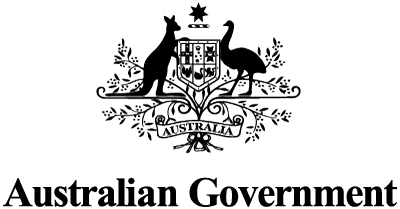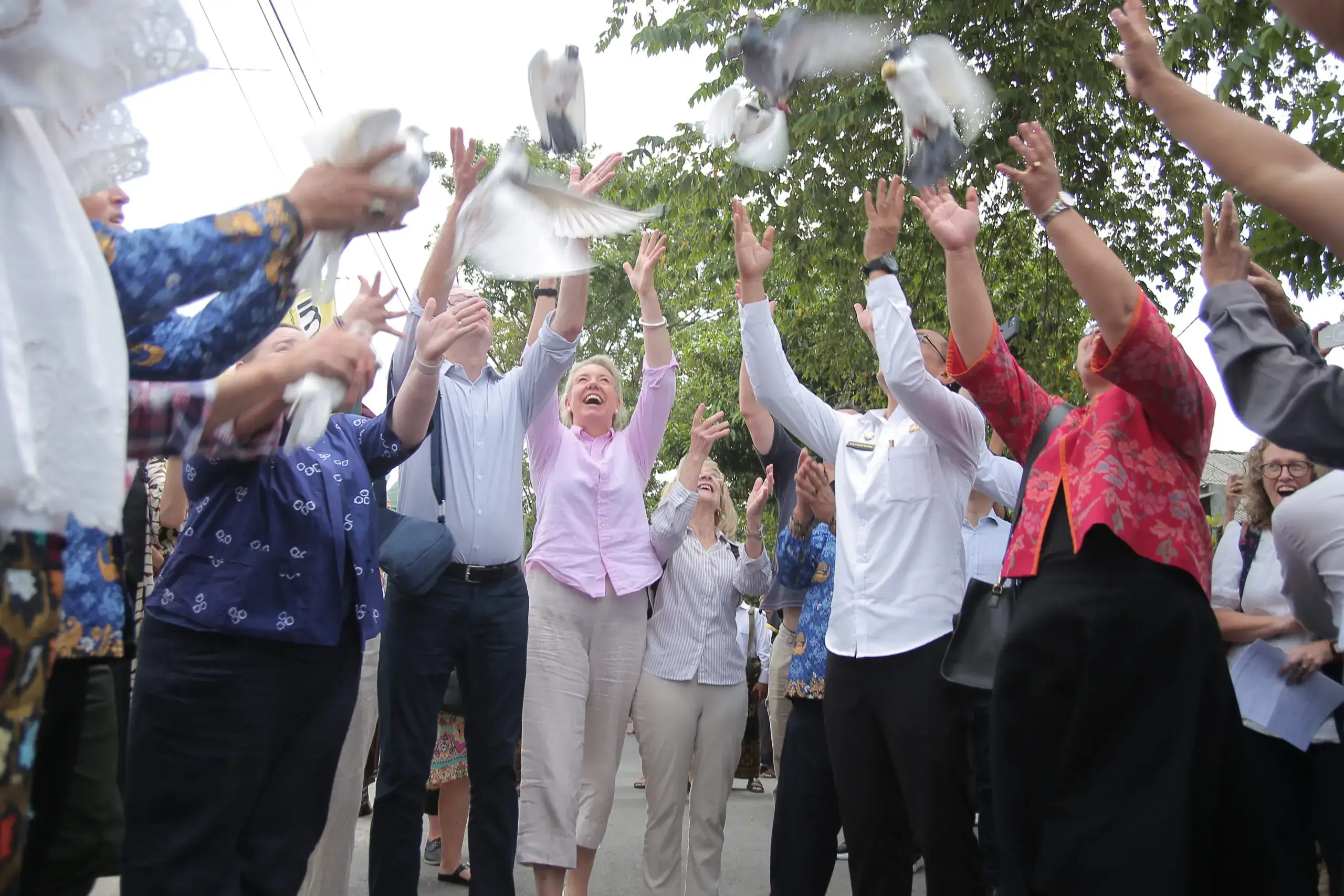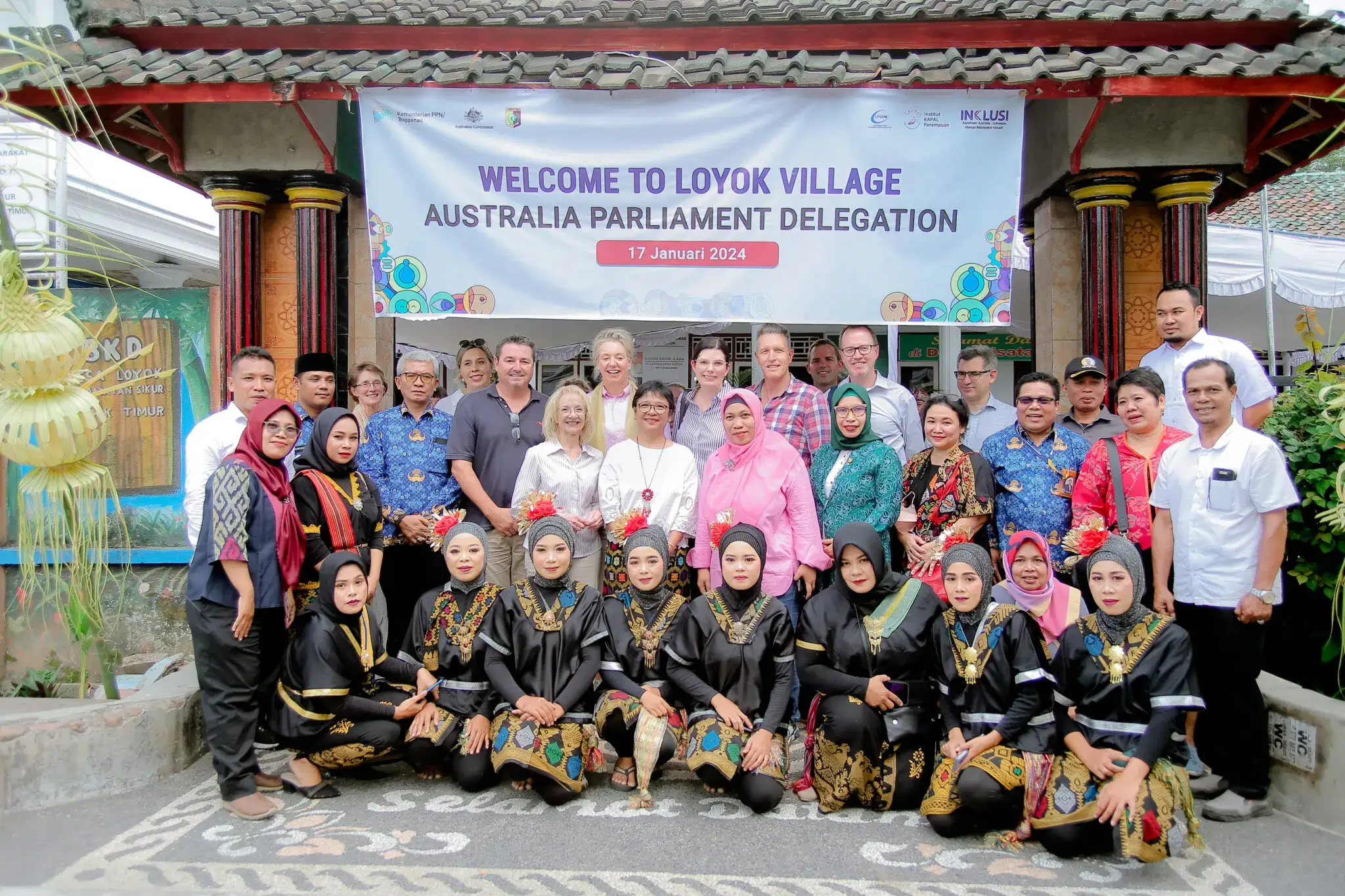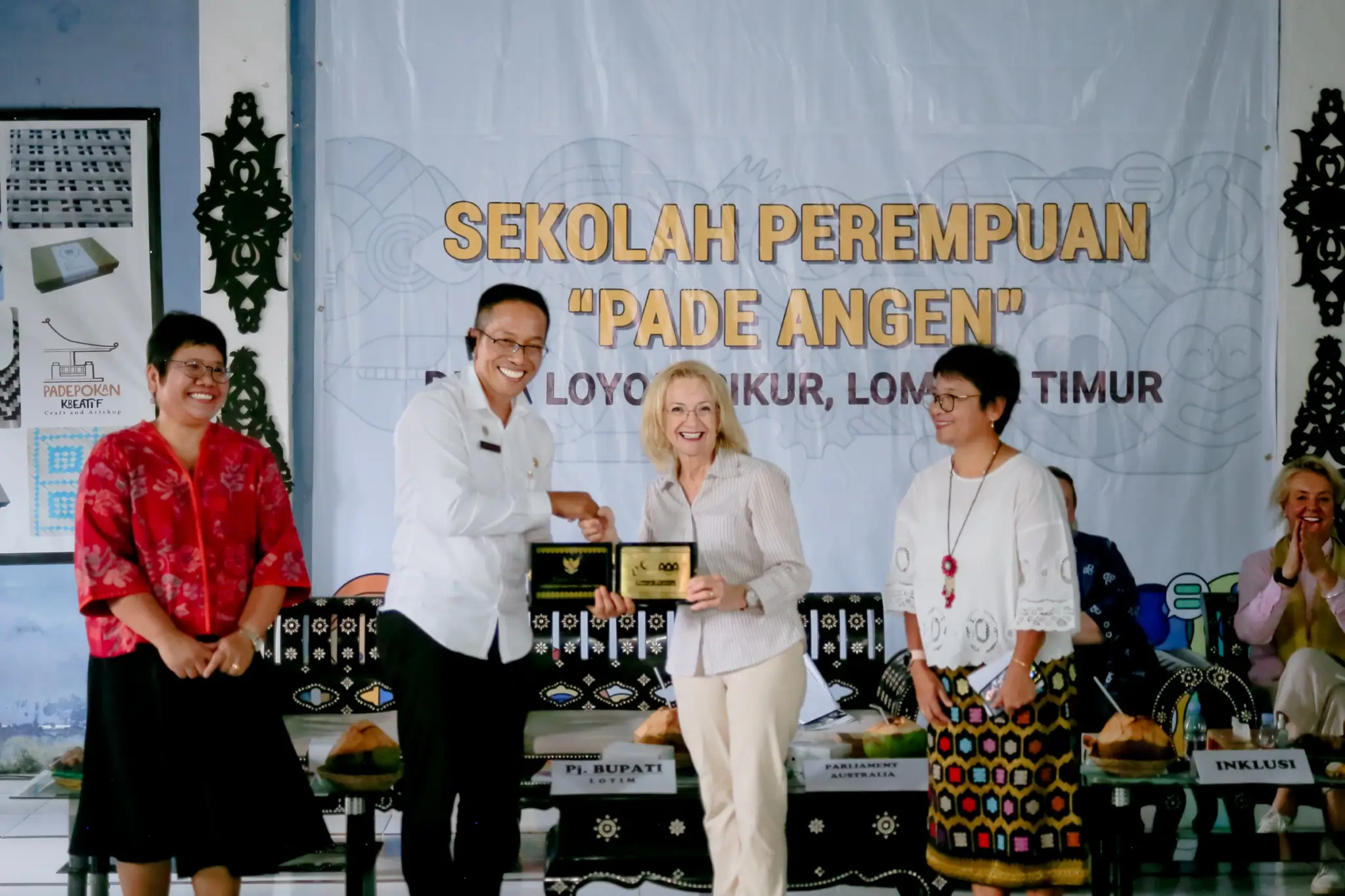Six members of the Australian Parliament visited the INKLUSI Program in East Lombok on 17 January 2024. The delegation was welcomed by members of the ‘Pade Angen’ Women’s School (Sekolah Perempuan) in Loyok Village an INKLUSI-supported village through civil society partners KAPAL Perempuan and the Resource Development Partner Institution (LPSDM). The visit comprises a significant component of the Australia Regional Leadership Initiative (ARLI). This initiative is designed to offer Australian Parliament members valuable opportunities to study the context of development cooperation programs.
Gathering at the Loyok Village Hall, the Australian Parliament delegation along with local and regional governments of West Nusa Tenggara, had the opportunity to see how women’s empowerment through KAPAL Perempuan’s Women’s School model could improve access to health and social services and help address complex challenges such as gender-based violence and child marriage.
The Sekolah Perempuan ‘Pade Angen’ in Loyok Village has been used as a reference and replicated in one of the women’s empowerment and child protection programs in East Lombok District, integrated with the national program of Women and Children Friendly Village,
said Misiyah, Chair of the Executive Board of KAPAL Perempuan.
Since 2022, through the Australia-Indonesia Partnership Towards an Inclusive Society (INKLUSI) Program, KAPAL Perempuan and their local partner LPSDM have developed the Sekolah Perempuan initiative as a model to empower women in remote regions. Sekolah Perempuan has not only served as a reference for the government’s initiatives in women and children empowerment but is also being integrated into the national Women and Children Friendly Village Program (DRPPA).
The Australian Parliament delegation acknowledged the valuable contribution of women at the community level, specifically recognising the Sekolah Perempuan initiative that maps social, economic, and political issues in the village through participatory data mapping. The collected data is essential for village governments as it include voices of marginalised groups, ensuring a more approach to village development planning.
The delegation also observed bamboo crafts produced by the School’s ‘Pade Angen’ Bamboo Craft Artshop, a micro-enterprise promoting post-pandemic recovery and economic self-reliance for women by utilising local village resources.
Muhammad Juaini Taofik, the Acting District Head of East Lombok District, views Loyok Village as a successful model for women’s empowerment and expresses hope that this effective approach can be replicated in other villages. The East Lombok government has demonstrated full support through concrete measures such as Memorandum of Understanding (MoU) and Cooperation Agreements (PKS) with key regional entities including Bappeda, DP3AKB, Dukcapil, DPMPD, and Dinsos. These collaborations aim to reinforce collective commitments to advancing the roles of women and community development in the 13 villages within NTB where LPSDM operates.
Named ‘Pade Angen,’ meaning ‘One Goal’ in the Sasak language of Lombok, Sekolah Perempuan ‘Pade Angen’ serves as a collective force encouraging women’s involvement in decision-making for development planning. This visit not only demonstrates appreciation and recognition of women’s contributions at the community level but also marks a positive stride in enhancing collaborative efforts among various stakeholders to foster equitable and inclusive community development in Indonesia.






